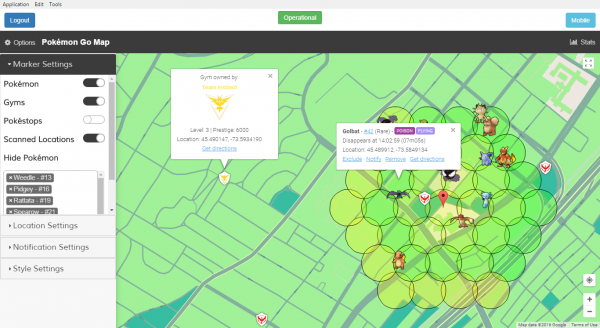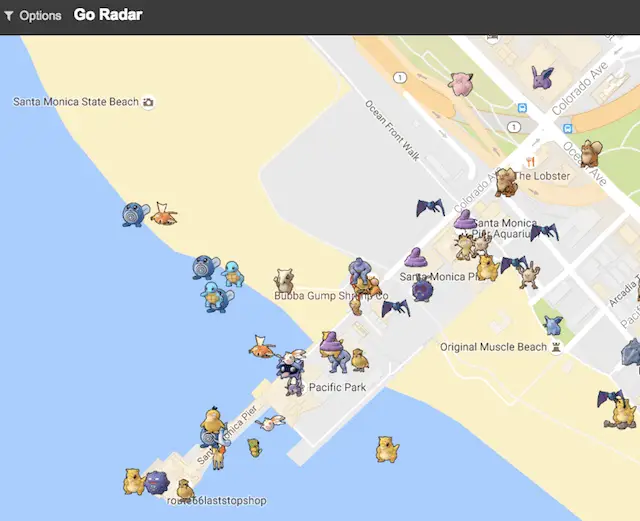
“This is about being able to walk around with glasses and know more about the world,” said Hanke at his 2019 GDC talk. In his GDC talk, Hanke continued on to describe another one of Niantic’s goals, one that may read as innocuous to starry-eyed ‘90s kids who wanted nothing more than a Poké-pal to travel with: “to build stuff that brings the digital and physical world together.”ĭepending on how you’re looking at it, that can mean an immersive Pokémon experience or, in Hanke’s terms, “ubiquitous computing,” which he said in 2016 meant adding “computing interfaces to everything you encounter in the physical world.” Niantic never granted us an interview with its CEO in person or by phone, but Hanke did eventually provide us with emailed responses to some of our questions.) (During the course of reporting this story over several months, Kotaku attempted multiple times to secure an interview with Hanke. If the new, and similar, Wizards Unite has the same staying power, perhaps its players will cover similar ground in the years to come.

We started Niantic with those themes in mind.” Pokémon Go players have walked a collective 14.3 billion miles since its release in July 2016. I was thinking of all the places I wanted to go and explore with my kids. “And when you become a parent it’s like you have a second chance, you can reset. Dressed down in a red Niantic T-shirt, his trademark swoop of brown-grey hair across his temple, he described the tripartite mission of his company: Exploration. It’s this idea of exploration,” said Niantic’s founder and CEO John Hanke during a talk at the 2019 Game Developers Conference in San Francisco. There’s a mystery that can be built here. “In every neighbourhood, there’s probably a story that’s interesting. Niantic’s ever-evolving gaming platform closely resembles Google Maps, in part because Niantic spawned from just that. Its games, from Ingress to Pokémon Go to Wizards Unite, encourage players to navigate and interact with the real world around them, whether it be tree-lined suburbs, big cities, local landmarks, the Eiffel Tower, strip malls, or statues in the town square. Niantic publicly describes itself as a gaming company with an outsized passion for getting gamers outside.

Should what Niantic does with its treasure trove of valuable data remain shrouded in the darkness particular to up-and-coming Silicon Valley darlings, that opacity might become so normalized that users lose any expectation of knowing how they’re being profited from. In the process, those technologists have made mistakes, both major and minor, with regards to user privacy.Īs Niantic summits the world of augmented reality, it’s engineering that future of that big-money field, too. Even players who know that the apps record their location data are usually astonished once they look at just how much they’ve told Niantic about their lives through their footsteps.įor years, users of these technologists’ products - from Google Street View to Pokémon Go - have been questioning how far they’re going with users’ information and whether those users are adequately educated on what they’re giving up and with whom it’s shared.

Today, when you use Wizards Unite or Pokémon Go or any of Niantic’s other apps, your every move is getting documented and stored - up to 13 times a minute, according to the results of a Kotaku investigation. They’re the latest products from a cell of technologists that’s been in operation since 2001, being acquired by and then spun off from Google, while never losing sight of its ultimate goal: to map the entire world digitally and capitalise on that data. Niantic’s apps regularly dominate app stores, just as the company itself dominates the world of augmented reality gaming. Millions of people play the game - not nearly as many as Pokémon Go’s impressive 150 million active users in 2018, two years after launch, but on release, it rocketed to the top of the app store with hundreds of thousands of downloads. Wizards Unite is an augmented reality mobile game developed by Niantic in partnership with Warner Brothers.

Niantic’s apps certainly encourage gamers to get outdoors and get active, but behind the scenes, Wizards Unite is quietly casting another spell: collecting a surprising amount of data about where you go. Harry Potter: Wizards Unite, the latest game from the company behind Pokémon Go, lets players harness the magic of their childhood to combat monsters and collect shimmering digital artefacts across their local neighbourhoods.


 0 kommentar(er)
0 kommentar(er)
